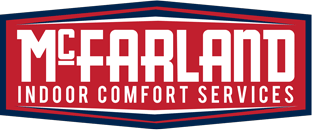Illinois No-Heat Emergency Checklist for Madison and St. Clair County Winters
A winter night without heat in southern Illinois can turn stressful fast. Temperatures can drop quickly, and homes in Madison and St. Clair counties are not built to handle prolonged cold without a working heating system. Knowing what to watch for and how to respond helps you protect your comfort, your home, and your family while professional help is on the way from a heating repair expert. Early Signs Of A No-Heat Emergency Heating problems often start small before becoming full outages. Paying attention to early warning signs can help you act before conditions get uncomfortable or unsafe. Cold air coming from vents instead of warm air Rooms heating unevenly throughout the house Unusual noises like rattling, buzzing, or repeated clicking A system that runs constantly but never reaches the set temperature A sudden increase in utility bills without a weather-related reason If you notice one or more of these issues during winter, it may signal an impending no-heat situation. Why Winter Heat Loss Is A Serious Concern Cold indoor temperatures are more than an inconvenience. Extended heat loss can lead to frozen pipes, water damage, and added strain on household systems. For families with young children, older adults, or...
View Article